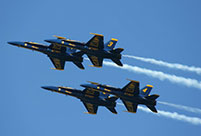 Goddesses at Golden Eagle Festival
Goddesses at Golden Eagle Festival
 J-10 fighters show aerobatic stunts in smog-free sky
J-10 fighters show aerobatic stunts in smog-free sky
 Top 10 charming female soldiers of the PLA
Top 10 charming female soldiers of the PLA
 Charming contestants of Shanghai Int’l Model Contest
Charming contestants of Shanghai Int’l Model Contest
 Most amazing chi-pao beauties
Most amazing chi-pao beauties
 Beauties forever
Beauties forever
 Picturesque autumn scenery of Hongshan Army Horse Ranch
Picturesque autumn scenery of Hongshan Army Horse Ranch
 Lingerie show at 2014 Miss China
Lingerie show at 2014 Miss China
 Swans begin to migrate from Xinjiang
Swans begin to migrate from Xinjiang
 30 romantic and beautiful sceneries around world
30 romantic and beautiful sceneries around world
One of the worst aspects of any outbreak of an infectious disease is the potential for panic among the general population. In fact, it is just this panic that has played such a large role in the severity of the Ebola outbreak in West Africa. Unfortunately, more than a few news agencies and public individuals in the US are playing their own part in adding to the already great public fears regarding the Ebola epidemic.
Of course, Ebola has long been a focus of public anxiety, rising from the natural fear surrounding an infectious disease with a very high mortality rate that currently has no effective pharmaceutical treatment.
The fact that the infected must be isolated and are thus unable to have any human contact during this most terrifying period adds to the fear surrounding this disease.
Finally, many news agencies have spread lurid stories about the disease's impact in Africa without adequately explaining the contributing political and social factors that have made this recent outbreak so serious.
In addition, diseases such as Ebola have become a favored tool for authors to create worldwide devastation in books and films alike. In many cases, these diseases bear no resemblance to actual diseases, being granted nearly supernatural levels of lethality in order to fulfill the needs of the author or scriptwriter.
Unfortunately, many individuals have allowed their view of the current Ebola crisis to be filtered through such fantastic tales.
This has resulted in a spate of frantic news stories and public announcements about the Ebola crisis that are, to put it mildly, unhelpful.
The hysterical demands by former South Carolina GOP official Todd Kincannon that anyone testing positive for Ebola should be killed and the statement by General John Kelly that the US may soon be flooded by "Ebola refugees" from Central and South America are both examples of the counterproductive public announcements surrounding this crisis.
A number of news organizations have publicized the danger that the Ebola virus may mutate into an airborne form without properly stressing how unlikely this possibility is.
The demands of a 24-hour news cycle have led to breathless commentators talking about the footage showing Dallas area police officer Michael Monnig being escorted into a hospital by isolation suit clad assistants.
Most damningly, even after tests proved that he had not contracted the disease, news reports continued to refer to the deputy as having "exhibited symptoms of Ebola."
These reports failed to note that a wide range of diseases can mimic the early symptoms of Ebola and that Monnig's tests were a precaution due to his contact with other potentially infected individuals rather than a sign of any serious threat of an Ebola outbreak in the US.
These irresponsible actions present two dangers. The first is to create an inflated public perception of the dangers of Ebola.
While deadly, Ebola is not the world-ending crisis some attempt to claim it is. In fact, the spread of the disease in West Africa has as much to do with the political and social disorder in the impacted nations as it does with the disease itself.
First world nations, with their robust national and medical infrastructure may experience isolated outbreaks, but are well situated to deal with those situations.
However, a media-fueled panic may result in an increased number of false reports, which will distract medical professionals from their primary duties.
In addition, as occurred during the AIDS panic of the 1980s, hysteria regarding Ebola could see individuals singled out for discrimination due to their perceived ties with individuals or places associated with Ebola.
Most seriously, the real battle against this current outbreak of Ebola is not being fought in the US or Spain, but in West Africa.
Diverting resources to address the hysteria whipped up by irresponsible announcements will do nothing to curb this epidemic, but may in fact contribute to its continued growth and spread.
Ironically, failing to support anti-Ebola efforts in West Africa would be the most likely way to ensure the diseases spread outside of that region.
News agencies have a responsibility to provide the people with the information they need, without spreading panic or disinformation.
Unfortunately, by focusing on the remote chance of a mutated Ebola virus, dramatic shots of isolation-suited individuals walking into a Dallas hospital, and hysterical comments by unqualified individuals, the American news media outlets have failed this test, and have helped to spread an infection of fear that is in its own way just as dangerous as the Ebola virus.
 Blue Angels thrill spectators in San Francisco
Blue Angels thrill spectators in San Francisco World's most intimidating nuclear weapons
World's most intimidating nuclear weapons Standard faces for each countries
Standard faces for each countries Who is China's campus beauty queen?
Who is China's campus beauty queen? Netizens fall in love with champion swimmer Ning Zetao
Netizens fall in love with champion swimmer Ning Zetao Vibrant 21-year-old and her own Cheongsam brand
Vibrant 21-year-old and her own Cheongsam brand Fashion style: Faye Wong vs Cecilia Cheung
Fashion style: Faye Wong vs Cecilia Cheung Jungle law: leopard preys on impala
Jungle law: leopard preys on impala Leading director Wang Quan'an detained for 'buying sex'
Leading director Wang Quan'an detained for 'buying sex' Top 10 handsome football players
Top 10 handsome football players  Top 10 Chinese goddesses
Top 10 Chinese goddesses  Top 20 hottest women in the world in 2014
Top 20 hottest women in the world in 2014 Top 10 fifth generation jet fighters in the world
Top 10 fifth generation jet fighters in the world Top 10 pure beauties in showbiz
Top 10 pure beauties in showbiz  Top 10 world's highest-paid models 2014
Top 10 world's highest-paid models 2014 The most gorgeous Chinese women
The most gorgeous Chinese women Top 10 most handsome faces in Asia
Top 10 most handsome faces in AsiaDay|Week|Month